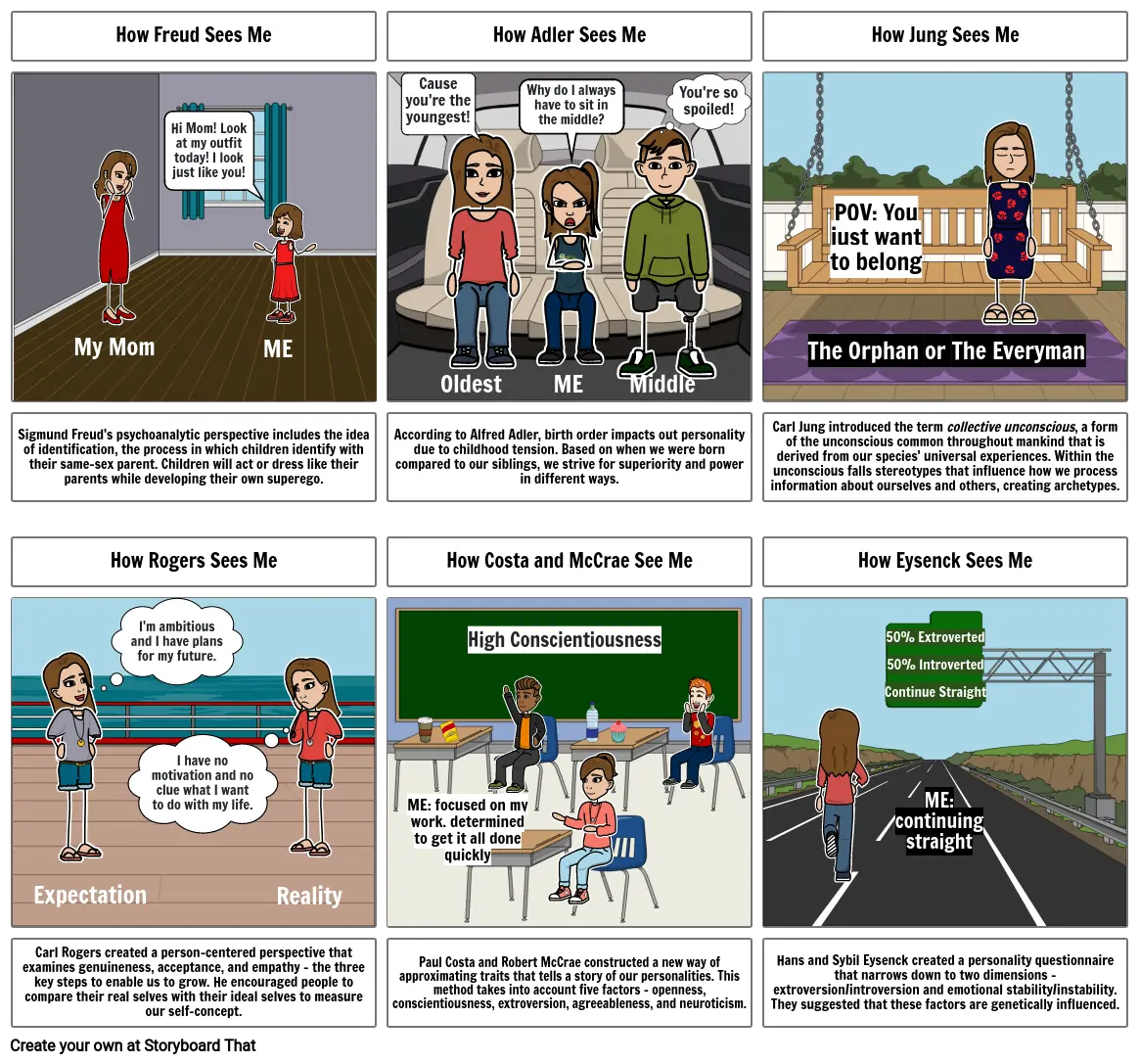How People See Me: Personality

Kuvakäsikirjoitus Teksti
- How Freud Sees Me
- My Mom
- Hi Mom! Look at my outfit today! I look just like you!
- ME
- How Adler Sees Me
- Cause you're the youngest!
- Why do I always have to sit in the middle?
- You're so spoiled!
- How Jung Sees Me
- The Orphan or The Everyman
- POV: You just want to belong
- Sigmund Freud's psychoanalytic perspective includes the idea of identification, the process in which children identify with their same-sex parent. Children will act or dress like their parents while developing their own superego.
- How Rogers Sees Me
- I'm ambitious and I have plans for my future.
- According to Alfred Adler, birth order impacts out personality due to childhood tension. Based on when we were born compared to our siblings, we strive for superiority and power in different ways.
- How Costa and McCrae See Me
- Oldest ME Middle
- High Conscientiousness
- Carl Jung introduced the term collective unconscious, a form of the unconscious common throughout mankind that is derived from our species' universal experiences. Within the unconscious falls stereotypes that influence how we process information about ourselves and others, creating archetypes.
- How Eysenck Sees Me
- 50% Extroverted50% IntrovertedContinue Straight
- Carl Rogers created a person-centered perspective that examines genuineness, acceptance, and empathy - the three key steps to enable us to grow. He encouraged people to compare their real selves with their ideal selves to measure our self-concept.
- Expectation
- I have no motivation and no clue what I want to do with my life.
- Reality
- Paul Costa and Robert McCrae constructed a new way of approximating traits that tells a story of our personalities. This method takes into account five factors - openness, conscientiousness, extroversion, agreeableness, and neuroticism.
- ME: focused on my work, determined to get it all done quickly
- Hans and Sybil Eysenck created a personality questionnaire that narrows down to two dimensions - extroversion/introversion and emotional stability/instability. They suggested that these factors are genetically influenced.
- ME: continuing straight
Yli 30 miljoonaa kuvakäsikirjoitusta luotu

